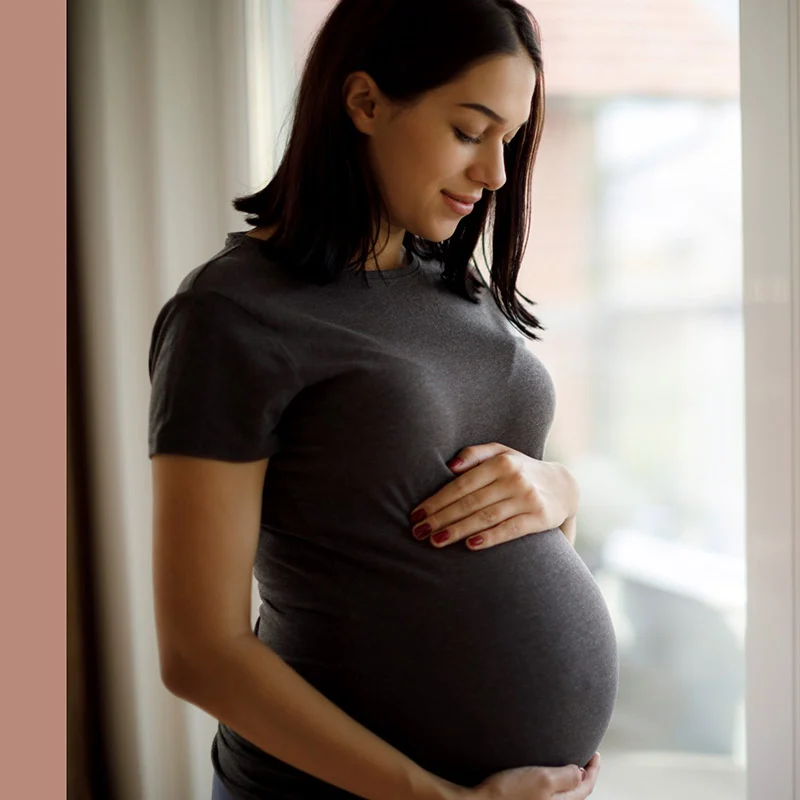I got my first period when I was just 11. By 12, my mom was already talking to a pediatrician about my heavy flow and awful cramps, leading to me being put on birth control. At 14, I tried continuous birth control to skip my periods altogether, but they still showed up at the worst times. Pain was just part of my life, and doctors didn’t seem concerned. That was my normal.
Fast forward to 20, when I saw a new OB-GYN. She was younger and more approachable. During our chat, she asked, “If you’re only having sex with women, why are you on birth control?” I explained my history with painful periods, and she suggested the Mirena IUD. A week later, I got it, and it mostly stopped my periods, except for the occasional random bleeding.
One February morning, after my usual Pure Barre class, I felt something was off. I met a friend for brunch, but after one mimosa, I knew I needed to go to the hospital. By the time I got to the ER, I was doubled over in pain. The triage nurse took my ID, and I collapsed on the floor, desperate for relief. They gave me morphine, then Dilaudid, but it did little until they finally started an IV.
After a CT scan and then an ultrasound, it turned out I had an ovarian cyst, which I was used to dealing with. However, things escalated when I had a transvaginal ultrasound that led to vomiting and bleeding. The on-call OB-GYN decided I needed exploratory surgery to see what was going on inside. I agreed.
When I woke up in recovery, my mom and sister were there. The doctor told me my right ovary had twisted due to adhesions, resulting in its loss, and she also found endometriosis. Endometriosis occurs when cells similar to those in the uterus grow outside of it, causing pain and complications. Looking back, all those years of symptoms made sense, but no one had connected the dots.
Discharged from the hospital, my pain persisted. A few months later, another OB-GYN performed excision surgery on the endometriosis, but it didn’t help. Between February and December, I went through four surgeries and spent a whopping 63 nights in the hospital.
Determined for a better year, I reached out to one of my OB-GYNs after three ER visits in just five days. I wrote, “Something has to be done. I need to see a doctor who can help me ASAP.” He quickly referred me to another doctor who agreed to see me.
This new doctor took nearly two hours with me, asking questions that made me feel heard. When I explained how endometriosis was ruining my life, I cried. He was the first to suggest that my issues could be related to adenomyosis or severe adhesions. He asked what I wanted, and I said, “I’m ready to put this disease behind me.” He mentioned that moving forward with a hysterectomy might be a reasonable option. I was sold; I didn’t need to think twice about it.
But not everyone was supportive. My friends and family offered mixed opinions. “You’re too young for this!” “You’ll regret it!” “Don’t do it!” Yet, my mom ultimately supported my decision, knowing I would follow my own path.
As the surgery date approached, I read many women’s stories about their hysterectomies. They expressed gratitude toward their uteruses for giving them children. But I was 25 and didn’t have kids; my uterus didn’t do me any favors. I felt calm the morning of my surgery, although the anesthesiologist questioned my decision. I felt like punching her for her doubt.
Once in the OR, I was greeted by my surgeon, who reassured me. After the surgery, he explained that my uterus had been fused to my abdominal wall and intestines due to adhesions. He had to call in a GI surgeon to help separate them. He found fibroids and more endometriosis, and he confirmed my uterus would never have carried a pregnancy to term.
Hearing that my hysterectomy was necessary and would improve my life was all I needed. Since the surgery, my life has drastically changed for the better. I no longer wake up in pain or have my sheets looking like a scene from a horror movie. I feel free and energized.
Now, I find myself sharing my story with every woman I meet, whether it’s at a doctor’s appointment or in line at the farmers market. I want women to know that my hysterectomy was an empowering choice that changed my life for the better. I can still pursue motherhood through adoption, and my sex life remains fulfilling. I want everyone to know that I had a hysterectomy, and I do not regret it. It was truly a life-changing decision.
If you’re considering your options for starting a family, check out resources like Make A Mom for help with at-home insemination, or visit Make A Mom’s sperm donor matching group for community support. You can learn about how at-home insemination works here. For those interested in boosting fertility, this fertility booster for men might be worth a look. Also, if you’re curious about the process of artificial insemination, this kit can be a great starting point. For comprehensive information on pregnancy and home insemination, check out CDC’s resources.
In summary, my hysterectomy was a pivotal moment in my life, leading to better health and a renewed sense of self. I’m here to spread the word that it’s possible to thrive after such a major decision.

Leave a Reply